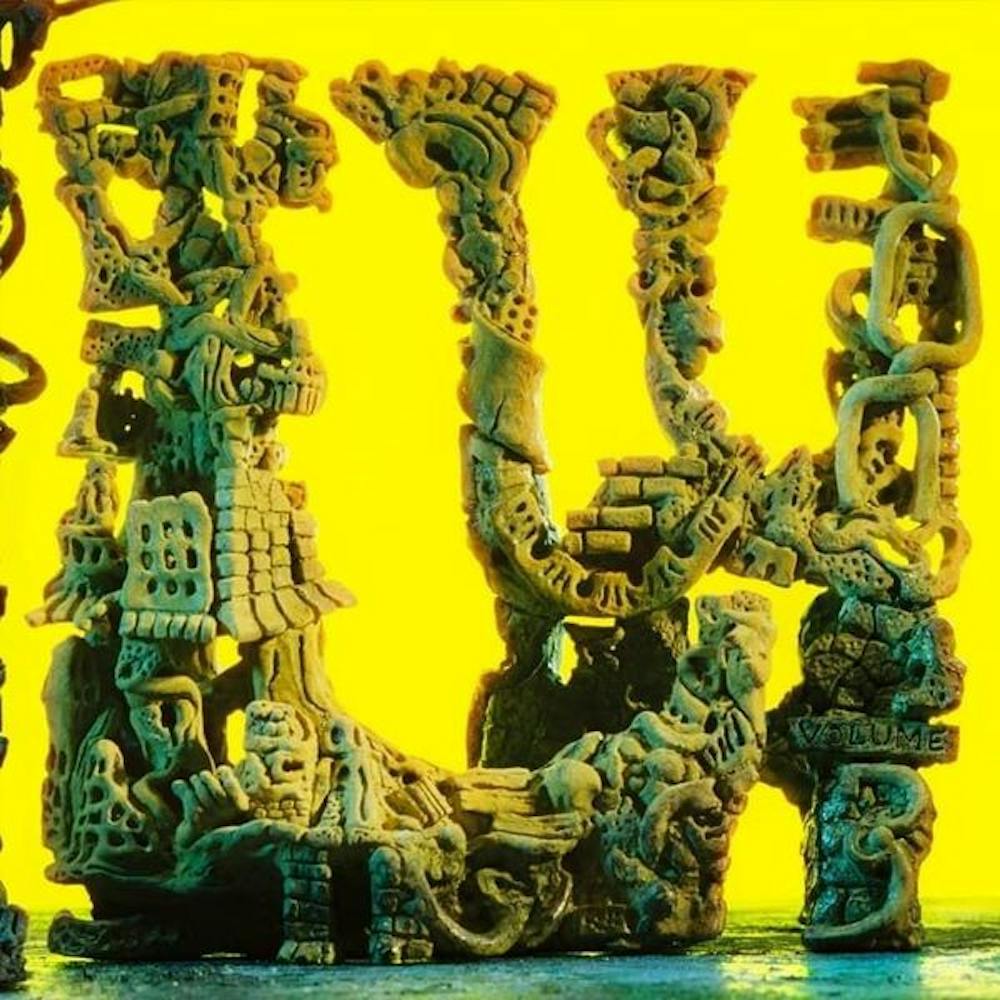By Brandon Carson King Gizzard and the Lizard Wizard are no strangers to making multiple albums within a year. In November 2020, the band released K.G., which served as volume 2 in their microtonal series. It offered new paths and directions for their sound and style with the Middle Eastern sounding “Ontology,” and the electro bop, “Intrasport,” but fell short in grabbing and keeping attention throughout the record. King Gizzard has always tried to push their boundaries: changing their sound on nearly every album and experimenting, making their 17th record L.W. look like a step backward. But over time, it proves to stand out on its own amongst the rest, while playing as the sequel to K.G. The band offers plenty of new routes to take their microtonal tuning and songwriting, and the lyrics are some of the best in their career. But some of the jams here can stale over time.
New microtonal paths
With Flying Microtonal Banana, King Gizzard introduced microtonal music to a more mainstream audience, colliding it with their psych-rock sound. K.G. returned to microtones over three years after Flying Microtonal Banana, and while some tracks felt completely original, others felt lackluster, beating around the bush until they ended. L.W., however, opens with something entirely original. “If Not Now, Then When?” picks up right where K.G. left off, flowing right into each other. But after the intro, the song completely changes to a jazzy, softer tone. It’s catchy, gripping, and entirely Gizzard. “Static Electricity” brings back the Middle Eastern influences and includes off-kilter, intricate verses that keep the listener's attention. There are standout moments in each song, like the cathartic instrumental break in “O.N.E.,” the psyched-out jam at the end of “Supreme Ascendancy,” and the seamless transition from “Static Electricity” to “East West Link.” But the mother of all songs on L.W. is the eight-minute, microtonal doom metal track, “K.G.L.W.” It’s a continuation of K.G.’s opening track of the same name, but a journey culminating the double-album experience of K.G. and L.W. Each riff in the song feels essential and is produced with a raw, uncut sound. If the band were to make another metal album, this would be the way to go. The production on the record feels just as good as K.G. with dense tones and incredibly tight drums. But there are also fun synth melodies that come up from time to time and vocal chants in “O.N.E.” that add more depth to the song.Eye-catching lyrics
One aspect that stood out on K.G. was the introspective and timely lyrics of environmental issues and the pandemic. L.W. finds similar themes of pessimistic world views of where the human race is headed, as well as political affairs and the environmental challenges our society has dealt with and the doomed future ahead, a King Gizzard staple. But the way they write has a quality unique to them, it's simple, but can be looked into deeper.“Drink the blood of that you spill/underneath the whippoorwill/one more piece of Jenga to pull/then Necromancer will thank us all,”Political themes can be found in “Supreme Ascendancy,” an angry take on how people who obtain power abuse it, using the Catholic Church as an example.
“Satan in a cassock casting black magic/Childhoods tragically ripped from their shaking feet/Conscious yet inadequate,”
Retracing old steps
Besides Flying Microtonal Banana, L.W. is their most consistent of the three microtonal volumes. Not jumping too far off the rails like K.G., but still managing to be adventurous in areas. However, a few tracks here do not hit the same highs as songs like “K.G.L.W.” and “Ataraxia,” while lyrically intricate, they fall short due to the quiet, confusing vocal performance from Joey Walker. Overall, the song has a Tool-inspired instrumental, but eventually meanders to nowhere during the end of the song, never finding a new direction. “See Me” introduces a hypnotic beat that resembles “Open Water” from Flying Microtonal Banana. But the longer the song goes, the more it drags on. The songs on L.W. could definitely be interchangeable with K.G., which is the point. However, when songs become forgettable, it begs the question, “Why wouldn’t they just put the best tracks from both records onto one album?”Top tracks:
If Not Now, Then When? K.G.L.W. Static ElectricityRecommended if you like:
Thee Oh Sees Tame Impala Psychedelic Porn CrumpetsSources: Metacritic Featured Image: Genius



















